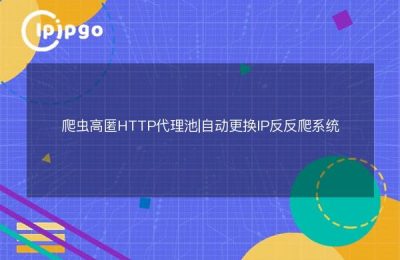
Proxy IP Selection Guide for Crawlers
When doing web crawling, using the right proxy IP can help you improve crawling efficiency, protect privacy and avoid IP blocking by the target website.However, there are many proxy IPs available in the market, how to pick the right one for crawling? This article will provide you with detailed suggestions and references.
1. Types of proxy IPs
Understanding the different types of proxy IPs is the first step in choosing the right proxy. Common proxy IP types include:
- Shared Agents:Multiple users sharing the same IP address is cheaper, but speed and stability may be poor and easily blocked.
- Exclusive Agent:Each user has an individual IP address, which is fast and stable for long crawling times.
- Rotating agents:Automatic switching of IP addresses to avoid frequent use of the same IP blocked by the target site, suitable for large-scale crawlers.
- Data Center Agents:IPs from data centers, which are fast, but may be recognized and blocked by the target site.
- Residential Agent:IPs from real users that are hard to recognize, suitable for crawlers that require high privacy and security.
2. Criteria for selecting proxy IPs
There are several criteria to consider when choosing a proxy IP suitable for crawlers:
- Speed:Choose a proxy IP with low latency and fast speed to ensure that the crawler can run efficiently.
- Stability:The stability of the proxy IP directly affects the effect of the crawler, prioritize the proxy with stable connection.
- Anonymity:Choose a proxy IP with high anonymity to protect your real IP address and reduce the risk of being banned.
- Price:Reasonable pricing is also an important factor in choosing a proxy IP, and try to choose a cost-effective service.
3. Ways of obtaining proxy IPs
In addition to choosing a service provider, you can also get a proxy IP in the following ways:
- Public proxy sites:Free proxy IPs are provided, but stability and security cannot be guaranteed.
- Build your own agent pool:Build your own proxy pool by crawling public proxy sites and regularly updating proxy IPs.
- API interface:Some proxy service providers provide API interfaces to dynamically obtain available proxy IPs, suitable for projects that require high-frequency crawling.
5. Notes on the use of proxy IP
When using a proxy IP, you need to pay attention to the following points:
- Follow the rules of the crawler:Respect the robots.txt file of the target site to avoid burdening the site.
- Sets the request interval:Reasonable request intervals are set to avoid frequent requests to the same website and reduce the risk of being banned.
- Monitor agent status:Regularly monitor the availability of proxy IPs and replace failed proxies in a timely manner.
- Handling exceptions:Incorporate an exception handling mechanism in the crawler code for cases where the proxy fails or the request fails.
summarize
Choosing the right proxy IP for your crawler is key to ensuring the success of your crawler project. By understanding the types of proxy IPs, selection criteria, and recommended service providers, you can find the proxy IP that best suits your needs. remember to follow cyber ethics and use proxies wisely to ensure the stability and security of your crawler.








